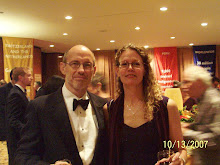The most likely proposal to become U.S. law to stem the worsening of the 2008 recession relies on giving cash to those most likely to spend it locally. This plan helps at least four constituencies; Low to medium income voters, incumbent politicians, local businesses and China. It will have only a momentary and limited effect on improving the health of our nation’s economy, our people or our children’s future job prospects.
There is one simple idea that would. It would reduce economic instability, improve national security, meet the most basic needs of needy people here and abroad, and put every nation’s economy on a sound foundation -- a healthy and educated population.
Implementation of this simple idea won’t be simple. But a micro-tax on the $1.8 trillion dollars worth of currencies being traded daily across international borders is doable. This microtax is not a new idea. Economics Professor James Tobin offered this economic tool over 30 years ago, and, it helped win him the Nobel Prize in economics. The genius of the proposal is that it would essential create a ‘new’ source of money for public goods and wouldn’t add to inflation like the current proposal requiring the ‘printing’ of new government money. Second, it would assist in reducing a significant threat to our national security - the free flow of currency across international borders. Few people remember that in the first report of the Hart/Rudman commission (a bipartisan Presidential Commission on National Security in the 21st Century that 6 months before 9-11 said Americans should prepare to die in large numbers on American soil) called ‘global economic instability’ the “second” greatest threat to our “national security”.
There appears to be only two means of reducing this instability factor . A single global currency (not even comprehensible by today’s politicians), or a micro-tax to slow the movement of currency. Something acceptable to most of the world’s politicians today -- except those in the US.
The vast majority of currency trading is from profit seeking speculators like George Soros. Currency trading is essentially, high stakes gambling attempting to milk easy profits from fluctuating currency differences between nations. And a microtax – a .02 percent fee on each cross border transaction -- could generate between $100 and $200 billion a year in new resources – not new printed money – without taxing 99.99% of the American people.
And, if we split this previously untapped resource to both developed and developing nations it would provide an economic stimulus that wouldn’t go away anytime soon.
Even better, if we were wise, kind and bold enough to devote a significant portion of this windfall to primary health care and basic education infrastructure in every community, state and nation, it would be a stimulus that would stimulate the most valuable asset known to all economists – human capital.
Health and education are the twin engines of any healthy and prosperous economy. Reducing poverty related deaths and illiteracy would also have two other profoundly helpful means of improving our nation’s security while boosting our economic health. The global emergence of new and mutated infectious diseases is arguably our greatest national security threat. A pandemic sparked by nature, terrorists or a laboratory accident is inevitable. A bird flu mutation or weaponized small pox release could potentially be more catastrophic than 9-11 and hurricane Katrina combined, times ten. And, like hurricanes, pandemics are a matter of ‘when’ not ‘if’.
A global network of community based primary health centers fully staffed, trained and equipped would provide the most immediate and cost effective means of prevention, early detection and rapid response to any source of pandemic threat.
Globally networked health facilities combined with cyber linked community schools in every village would also be extremely helpful in winning minds and providing useful intelligence that could aid us in reducing terrorist threats and prevent other violations of basic human rights.
Implementation of such a global tax scheme wouldn’t be as problematic as imagined. British Prime Minister Brown this week suggested the IMF consider the role of reducing global currency instability. And, ‘The Global Fund’ combating HIV/AIDS, Malaria and TB has proven to be a nearly ideal structure for distributing humanitarian funds. The existing global network of faith and non-faith based non-governmental charities are more than capable of effective use of new resources and have been begging for additional funding for decades.
Banks who handle large currency sums were once unwilling to provide governments with client financial data…but after 9-11 and the vital need to track money flows, such banking disclosers are now law.
The only thing we will need to sacrifice to implement this profoundly simple and effective stimulus package is to abandon our outdated notion of ‘national sovereignty’. We cannot independently protect Americans from the growing array of threats we face. It’s time for a global tax, and, universal health and education for all. This is the best economic stimulus package imaginable. On that goes way beyond short term benefits to low income people, local businesses, politicians and the government of China.


0 Comments:
Post a Comment
<< Home